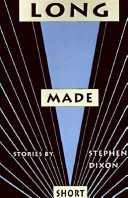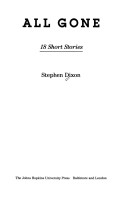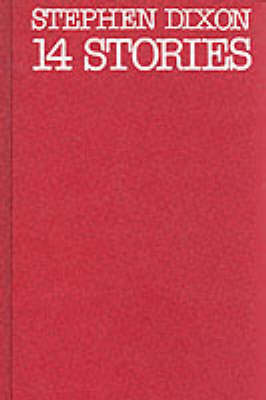Johns Hopkins: Poetry and Fiction
4 total works
In Time to Go, the author of the highly acclaimed 14 Stories, Long Made Short, and All Gone has written a dazzling book of eighteen interlocking pieces. Part short story collection, part novel, Time to Go moves from despair to hope, from the passing of things -- time, relationships, businesses, chances -- to the coming of marriage, stability, family, a new life. It is a book that can be in turn frightening and funny, touching and tough -- and one that is, on occasion, all these things at once.
This collection, a non-baker's dozen of what the author calls post-Frog fictions, work written since his novel "Frog" - a finalist for the National Book Award and the PEN/Faulkner Prize was completed in 1991, is about loss, mainly: culture ("The Rare Muscovite"), allurement ("The Caller"), reliability ("Flying"), continuity ("Man, Woman, and Boy"), potency ("Crows"), companions ("Voices, Thoughts"), skull ("Battered Head"), child ("Lost"), parent ("Turning the Corner"), footing ("The Fall"), prize ("The Victor"), collection ("Moon"), as well as the flip side of loss. This is not necessarily gain, triumph, or resurrection but imaginative recreation, creative refutation and self-destructive creation: what-could-have-been, what-I-should-have-done, what-never-took-place, which give the stories' stalkers a brief respite and interim release of unagitated loss, remorse, and compatibility. The range in emotion, situation, and technique is extreme: humorous-tragic, raw-lyrical, implausible-believable, bedlam-calm. "Long Made Short" is storytelling and story writing and also a story deleted from this collection to shorten it and make it an even dozen.
A collection of 18 short stories by a "very skillful storyteller (whose) grasp of the life of ordinary American city dwellers is such that he can shape it dramatically to meet the demands of his far from ordinary imagination" ("Times Literary Supplement").
Stephen Dixon's stories and novels have an original, immediately recognizable sound and feel --a weird blend of Franz Kafka and Frank Capra. Readers of his previous work will find in 14 Stories that same wry, inventive, knife-edged humor that has come to characterize his distinctive style. With an adroit use of language and a keen eye for the quirky, offbeat side of human nature, Dixon creates a world as viewed through a fish-eye lens--slightly distorted and off-center, yet recognizable and often familiar.
14 Stories is part comedy, part tragedy, part social comment and part spoof. But most of all it is a highly entertaining series of all-too-plausible vignettes that shows off Stephen Dixon's remarkable talent at its best.



